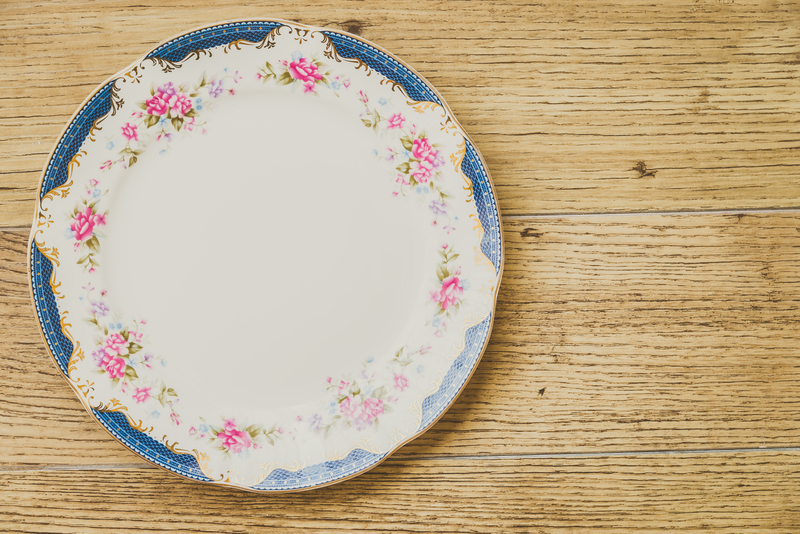A Guide to Environmentally Friendly Plant Pot Disposal
Are you wondering what to do with all those empty plant pots piling up in your garden or garage? In our eco-conscious times, understanding how to dispose of plant pots in an environmentally friendly way is essential for reducing waste and supporting a circular economy. This comprehensive guide will walk you through sustainable solutions and practical tips to ensure your plant pot disposal minimizes environmental impact and supports a greener future.
Why Is Responsible Plant Pot Disposal Important?
The horticulture industry uses millions of pots annually, most of which are made from various plastics. Without proper plant pot recycling or disposal, these pots can end up in landfills, contributing to plastic pollution and harming wildlife. Responsible disposal not only conserves resources but also supports sustainable gardening practices for the benefit of our planet.
- Plastic waste persists in the environment for centuries.
- Certain plastics release toxic chemicals when degraded.
- Proper disposal encourages a circular economy.

Understanding Different Types of Plant Pots
Before choosing the best disposal method, you need to identify what your pots are made of. Here are the most common types:
Plastic Plant Pots
Most widely used and often labeled with recycling codes 1 (PET), 2 (HDPE), or 5 (PP). Unfortunately, some of these plastics, especially black pots, are difficult to recycle through municipal curbside programs.
Biodegradable or Compostable Pots
Made from materials like coir, peat, paper, or bioplastics. These can often be composted or allowed to decompose in the soil.
Ceramic, Terracotta, and Other Inorganics
Heavier pots, less likely to deteriorate, but potentially reusable or upcyclable.
Eco-Friendly Ways to Dispose of Plant Pots
- Reuse - Give your pot a new life or find someone else who can.
- Recycle - Use appropriate recycling streams for suitable materials.
- Compost - For biodegradable pots only.
- Donate - Share with local gardening groups, schools, or nurseries.
- Repurpose or Upcycle - Get creative to reduce waste.
1. Reusing Plant Pots
Reusing is the most sustainable first step in environmentally friendly plant pot disposal. Whether for your own future plantings or for other innovative purposes, consider these ideas:
- Start seeds or propagate cuttings in smaller pots.
- Use larger containers for container gardening or patio plants.
- Employ as storage bins for gardening tools, hardware, or craft supplies.
- Gift to friends, neighbors, or community gardens.
2. Recycling Plastic Plant Pots
The recyclability of plastic plant pots depends on the type of plastic and local recycling policies. Here's how to ensure proper recycling:
- Look for the recycling symbol on the bottom and note the number.
- Contact your local recycling center or municipal website to check which plastics they accept.
- Clean pots thoroughly before recycling to remove dirt and debris.
- Set aside black plastic pots for drop-off recycling, as many curbside programs cannot process them.
- Visit garden centers or nurseries--many offer take-back recycling programs for plant pots and trays.
Pro Tip: Some national retailers and garden centers (like Lowe's or Home Depot) have dedicated plant pot recycling collection points. Always call ahead or check online to confirm participation.
3. Composting Biodegradable Pots
Biodegradable garden pots, typically made from paper, coir, peat, or even mushroom mycelium, can be added directly into compost bins (if chemical-free and with no plastic liner) or planted in the ground with your seedling. This method of environmentally responsible plant pot disposal returns nutrients to the soil and eliminates waste entirely.
- Check packaging for certification like "compostable" or "biodegradable".
- Shred or break up larger pots before adding to the compost heap.
- Remove plastic stickers, staples, or labels beforehand.
4. Donating Unused or Gently Used Pots
Garden clubs, schools, public parks, and community gardens can often put your gently used pots to good use. Donating is a sustainable method for plant pot disposal that supports local green efforts and reduces your environmental footprint.
- Contact local gardening organizations or clubs.
- Ask schools or non-profits if they need nursery pots for projects.
- Check online community boards like Freecycle, Facebook Marketplace, or Craigslist.
5. Repurposing and Upcycling Plant Pots
Before sending your pots off, consider creative upcycling alternatives for an eco-friendly plant pot disposal. Some inspiration:
- Transform small pots into organizers for pens, screws, or art supplies.
- Create outdoor planter art or decorative arrangements.
- Drill holes to create miniature fairy gardens or bug hotels.
- Stack larger pots for a whimsical garden sculpture or a cascading water feature.
Special Considerations by Material
Disposing of Black Plastic Plant Pots
Black plastic pots are especially problematic because optical sorting machines in recycling facilities often can't detect them. They require special handling:
- Collect and return to major garden centers with dedicated recycling bins.
- Repurpose for seedling transport, garden edging, or storage.
- If no recycling options exist locally, minimize purchasing them in future.
Clay, Terracotta, and Ceramic Pot Disposal
Though not suitable for traditional recycling, these materials can be:
- Reused in the garden as planters, mulch holders, or pot feet.
- Broken into pieces to use as drainage material in other planters.
- Donated to mosaic artists, teachers, or upcyclers.
- Disposed of at a building materials recycling facility if broken and beyond reuse.
Metal Pots and Other Unusual Materials
Decorative metal pots can often be recycled with scrap metal if they're clean and unpainted. Double-check with your local recyclers or explore creative DIY uses.
Reducing Future Plant Pot Waste
The most effective long-term strategy is to minimize the accumulation of hard-to-recycle pots in the first place. Here's how:
- Purchase bare-root or potted plants in biodegradable pots when possible.
- Request "potless" or rootballed plants from local nurseries.
- Invest in reusable grow bags or long-lasting ceramic containers.
- Support nurseries using responsible packaging or plant pot take-back schemes.
Frequently Asked Questions about Plant Pot Disposal
Can I Put Plastic Plant Pots in My Recycling Bin?
Sometimes, but not always. Many curbside recycling programs exclude black or certain non-marked plastics. Check the recycling number and your local guidelines. When in doubt, drop off at a participating garden center.
How Do I Know If a Pot Is Biodegradable?
Consult the packaging or ask the retailer. Truly compostable pots are normally made from fiber, coir, or paper and will be labeled "compostable" or "biodegradable." Avoid "bioplastic" pots unless you're sure your compost facility accepts them.
What Should I Do with Broken or Damaged Pots?
- Ceramic or terracotta: break up and use as drainage or path filler.
- Plastic: recycle if possible, otherwise repurpose for garden markers or crafts.
- Biodegradable: compost or bury in the garden.
Are There Any Safe Ways to Burn Old Plant Pots?
No. Burning plastic or even biodegradable plant pots can release toxic fumes or particulate matter into the air. Always choose recycling or composting over incineration.
Why Are There So Few Recycling Options for Black Plastic Pots?
Black pigment confuses optical sorters in recycling plants, leading to the pots being missed or rejected. Their complete lack of reflection prevents sorting, so they often go to landfill unless collected by specialized garden center programs.

Conclusion: Support a Greener Garden by Disposing Responsibly
Plant pot disposal doesn't have to cost the earth! With these environmentally friendly solutions, you can reduce your plastic footprint, support local green initiatives, and even tap into new creative projects. The key to eco-friendly plant pot disposal is a combination of reuse, donation, recycling, composting, and smart purchasing choices.
The next time you finish replanting or bring home a new green friend, consider where your pot will ultimately end up. By making conscious disposal choices, you play a vital role in creating a healthier environment--one plant pot at a time.
Further Reading & Resources
- Royal Horticultural Society: Plant Pot Recycling Guide
- Garden Organic: Plastic Plant Pot Reduction and Recycling
- US EPA: How to Recycle
Start your journey towards sustainable gardening--dispose of your plant pots responsibly today!






